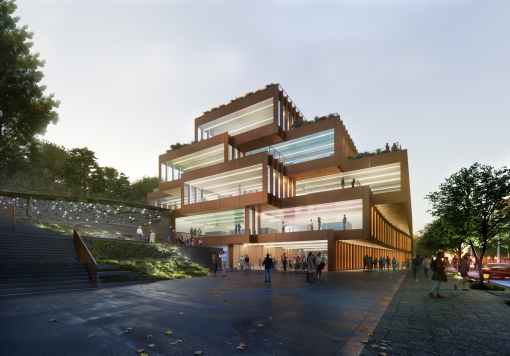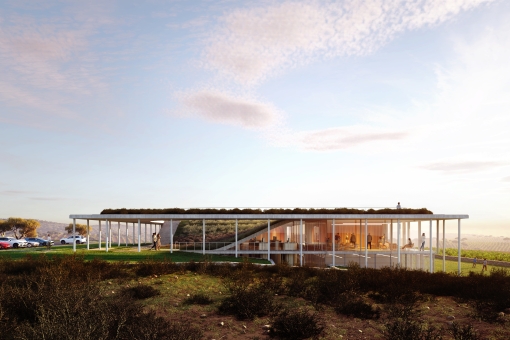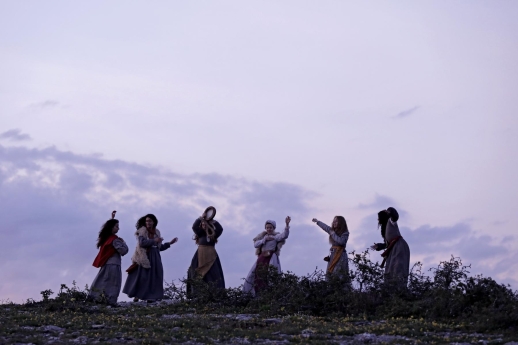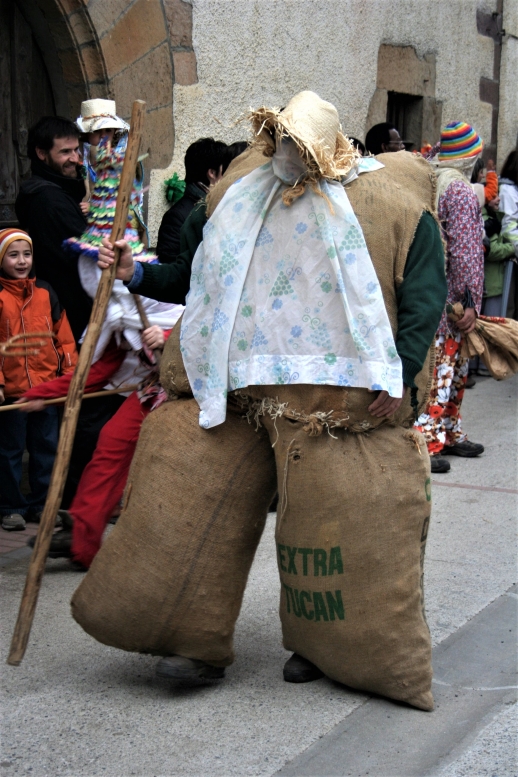If you stare long enough at the modern building, tucked down a hidden street in the hills above the center of San Sebastián, it starts to look like a stack of plates. Coincidence? Likely not, considering this building is Basque Culinary Center, a university and research center wholly dedicated to the study, investigation and preparation of food. Through its doors flow a roster of famous chefs, eager students, and capable professors and researchers, which has turned this tiny parcel above the city into a mecca of the food world.
Basque Roots, Global Impact: Inside the Basque Culinary Center
17 Sep 2025
Opened in 2011, the idea behind Basque Culinary Center, or BCC, was simple: unite training, research, and innovation under one roof to develop the culinary sector but do it with a clear international focus while linking it to management, science, and other disciplines.
The results in a little over a decade, however, have been more far-reaching than that initial manifesto—as both students and experts pass through its doors, the life that their learning and subsequent projects take on deeply impacts their communities and modern-day Basque cuisine. It´s one of the behind-the-scenes reasons Basque Country remains one of the world’s most exciting and influential food hubs.

The Foundations of the Basque Culinary Center
Tradition, culinary prowess, and incredible produce has been the backbone of Basque cuisine decades. Since the founding of the New Basque Cuisine movement in the 1970s, Basque Country has been on the global map as a culinary hotspot. The creation of Basque Culinary Center was a natural next step, and in 2009 the Faculty of Gastronomic Sciences, the first in Spain from Mondragon University, combined with a unique R&D research center to become a fully unique project that combines academic excellence with entrepreneurial innovation, all while promoting all aspects of culinary culture. Not only do the local governments and local starred chefs like Juan Mari and Elena Arzak, Pedro Subijana, Martin Berasategui, Karlos Arguiñano, Eneko Atxa, Hilario Arbelaitz, Aitor Arregi and Diego Guerrero offer their constant support; the Basque Culinary Center has an International Advisory Board made up of the world’s most influential chefs, from Ferran Adrià to Dan Barbor and Réne Redzepi as gounder members, and Michel Bras, Gastón Acurio, Pía Leon and Manu Buffara as active members, among others.
Inside the Doors of the Basque Culinary Center
One of the most obvious, and important, ways that Basque Culinary Center is influencing Basque and global cuisine is through its work to professionalize the sector. By establishing cuisine as a university-level discipline, the BCC is helping to elevate cooking from a trade to an academic profession.
At Basque Culinary Center, students gather from all over the world for educational offerings including the bachelor’s degree in Gastronomy and Culinary Arts (an official university degree) and the master’s degree in Restaurant Innovation and Management. The BCC also offers continuing education (courses aimed at all types of professionals related in some way to gastronomy) and, within Bculinary Club, courses for gastronomy enthusiasts. Meanwhile, behind closed doors, its Center for Research and Innovation in Food and Gastronomy develops six lines of research: education and eating habits, social food responsibility, food trends, innovation in business management in the sector, the development of associated technologies, and food preparation, presentation, and preservation.
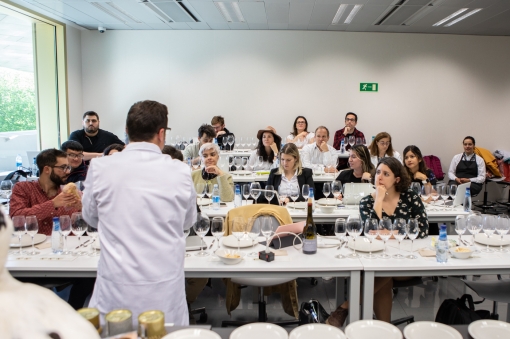
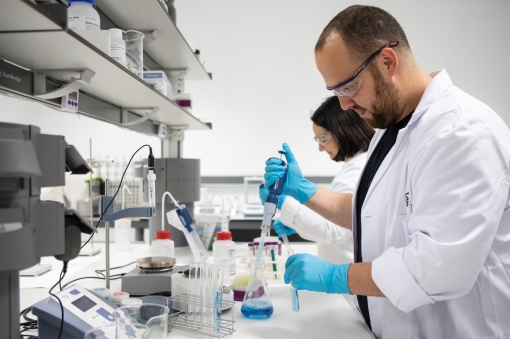
How the Basque Culinary Center is Influencing Basque Cuisine on a Global Stage
The reach of this project is quite remarkable. Even for those who have never stepped foot into the building, Basque Culinary Center has ripple effects that can be felt throughout Basque Country and beyond.
Attracting international talent
With over 4,360 students from over 35 countries since its opening, BCC has made the Basque Country a global destination for culinary education. Chefs and researchers come year-round for activities and classes, turning San Sebastián into a year-round international culinary capital. Many international students have stayed in the region, opening their own restaurants and enriching the local culinary scene with diverse perspectives, which brings us quite neatly to the next point.
Creating a generation of entrepreneurs
Whether you’re stepping into a Michelin-starred farm-to-table restaurant in Tolosa or a tiny kitchen in San Sebastián’s up-and-coming neighborhood of Gros where producers practically write the menu, eating at any of the region’s newest restaurants means you may just be at the hands of graduates of the BCC. Over 50 graduates of Basque Culinary have gone on to open businesses right here in Basque Country, some of which have already reached a notable level. Ama in Tolosa, opened by two graduates, was just awarded its second sol from the Guía Repsol, in addition to its Michelin star.
And it’s not just about those who go on to open restaurants—the BCC’s Culinary Action! program has supported hundreds of food startups, revitalizing the region´s gastronomic landscape with new concepts. This entrepreneurial focus has helped diversify the Basque food scene beyond traditional establishments.
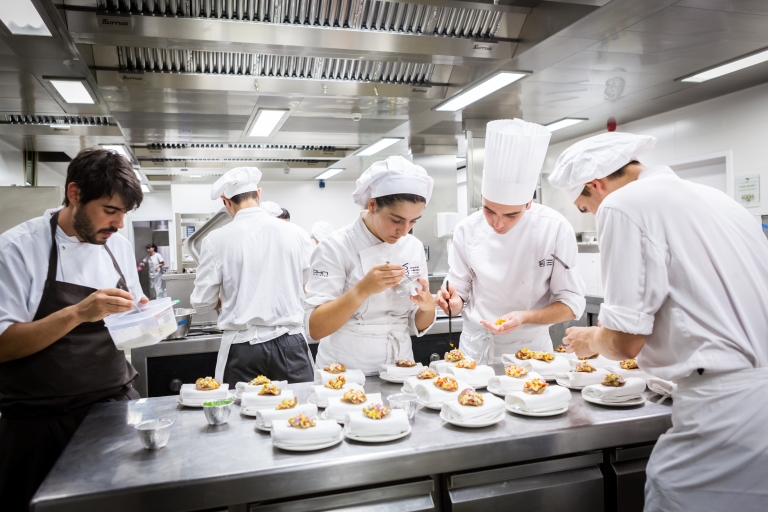
Establishing global influence in food ethics
BCC organizes projects like the ´Basque Culinary World Prize´ (past winners include Leonor Espinosa for her work with indigenous communities and José Andrés for humanitarian efforts) and events like ´Diálogos de cocina´, a biennial conference that brings together thinkers, chefs, and scientists to explore the role of food in shaping the future. Both of these initiatives promote food as a tool for social change, and through these types of events, Basque Country transcends a mere place to come and eat well, positioning itself rather as a thought leader in food ethics and sustainability.

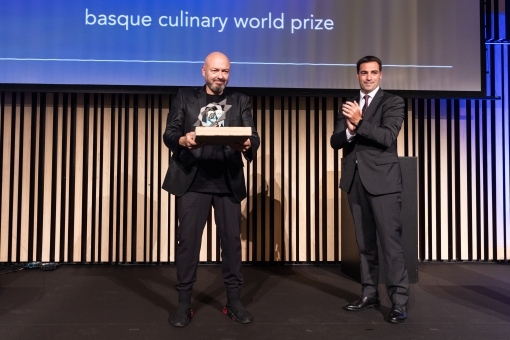
Fostering innovation rooted in tradition
In the 21st century, Basques fostered innovation as one of their major values. The BCC continues the tradition of innovation started with the Nueva Cocina Vasca movement, bridging the gap between traditional cuisine and cutting-edge food science. Their research on sustainability, health, and digital transformation has helped modernize Basque cuisine while respecting its roots. In the research arm of the BCC, over 80 projects a year are brought to light, many of them at a European level.
Preserving traditional culture
Innovation is about looking both forward and backwards, and the BCC also plays a key role in documenting and preserving Basque culinary heritage, supporting research on traditional recipes, oral histories, and local products—essentially archiving Basque cuisine for future generations. Programs like Mantala Basque Gastronomy gather the region’s most knowledgeable chefs and producers to preserve traditional knowledge while encouraging evolution, ensuring Basque culinary heritage remains relevant for future generations.
Economic and cultural impact
The BCC’s impact on the local dining scene goes beyond a spate of new restaurants. Its influence extends to food production, tourism, and technology sectors, with an independent study showing that from 2012 to 2022, the BCC generated an economic impact of €228 million, with a GDP contribution of nearly €125 million and a return to public administration of €39 million. Suddenly, or not so suddenly, local culinary culture has become a major economic driver.
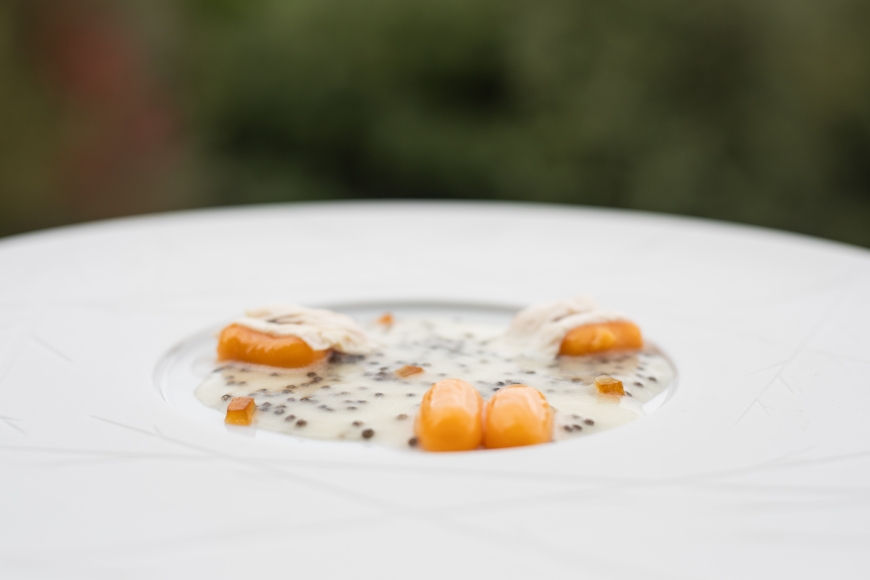
Digesting the Basque Culinary Center’s Importance
The impact of the BCC is visible across Basque cuisine, everywhere from farm-to-table restaurants to global awards stages. Thanks to a balance between innovation and tradition, it has helped guide Basque cuisine into a dynamic force that balances deep-rooted tradition with forward-thinking innovation. By nurturing global talent, supporting food entrepreneurship, and preserving culinary heritage, it has helped to position Basque Country at the forefront of the international culinary scene. With upcoming projects, such as Gastronomy Open Ecosystem (GOe, a center focused on innovation) and the EDA (EDA Drinks & Wine Campus), the future looks bright for both the BCC and the Basque culinary scene.
